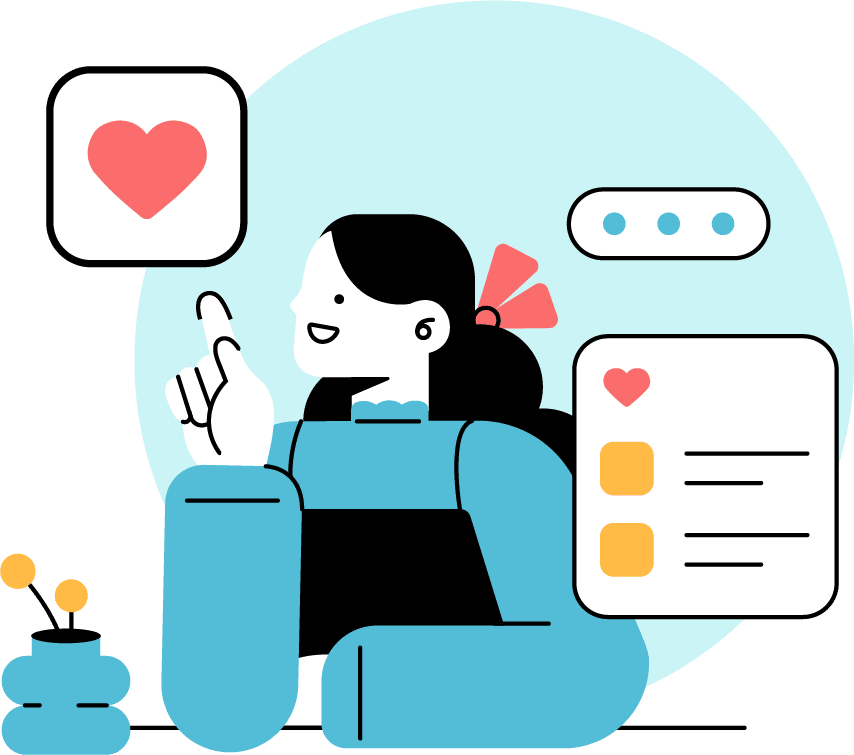Paid and Unpaid Mental Health Leave Is Available for Employees Experiencing Work-Related Stress and Burnout
There is no question that if you have a broken limb or very serious surgery you should stay home from work to recover on sick leave. The same goes for giving birth. But what about mental health conditions such as burnout, depression, anxiety, or other significant life stressors that could lead to more serious physical problems if left untreated?
Is taking time off to treat mental health an option for you?
In short, yes it is. Keep on reading to find out how.
What is Burnout?
Burnout is most commonly described as occupational chronic exposure to stress; however, burnout can also be seen in caregivers, individuals with chronic medical conditions, parents, and students.
Some of the most common mental health symptoms of burnout are extreme exhaustion, anxiety, depression, lethargy, and hopelessness.
What are the causes of burnout, stress, and anxiety?
- Heavy workload
- Lack of control
- Unclear responsibilities
- Little to no support from supervisors or peers
- Toxic work culture
- Workplace harassment
- Irritability towards coworkers, family, and friends
- No recognition for efforts
What are the symptoms?
- Feeling tired or exhausted
- No enthusiasm, and feelings of negativity toward your job
- Inability to perform your job
- Conflicts with others, both at and outside of work
- Difficulty sleeping
- Irritability towards co-workers
How To Treat Burnout
- Meditation or mindfulness practices
- Research shows that meditation decreases levels of stress and anxiety, and increases focus and concentration. It can also help decrease blood pressure, increases blood flow to the heart, and decreases muscle tension.
- Exercise/physical activity
- Exercise can provide stress relief and help your body and its systems practice working together through those effects. It has also been shown to improve your mood and lower symptoms of mild depression and anxiety.
- Creative pursuits
- Creativity can help focus the mind and has been likened to meditation due to its calming effects on the brain and body. Simply spending some time in the garden or painting releases dopamine, a natural antidepressant. These activities have been shown to reduce anxiety, depression, and stress and they can also help you process trauma.
- Therapy
- Therapists can help you understand your work stress and learn proven techniques for managing it. Consider intensive treatment programs that are specific to treating workplace-related trauma and burnout, more on that below.
Do I need to take leave from work for treatment?
Taking a stress leave of absence is a personal decision that you have to think about and decide with your mental health provider and family. If your condition is getting in the way of your job and personal life, then it is recommended to take a leave. It is important to note that this option is not available to everybody.
Most mental health providers will recommend that you start a therapy treatment program in order to approve your leave. Licensed therapists help you identify triggers, learn healthy habits, recognize unhealthy thoughts and behaviors, and learn coping skills and strategies so you are ready to integrate back into the workforce. Staying healthy mentally and physically means that you can perform at your best.
Can I Get Fired if I Request Stress Leave From Work
It depends. There are several state and federal laws in place that protect employees from losing their jobs as a result of taking unpaid or paid sick leave. Most notably, the Family and Medical Leave Act (or FMLA) provides most employees with up to 12 weeks of protected unpaid leave per calendar year. It is designed to allow employees with mental health issues or serious health conditions to step away from work responsibilities without the risk of losing their job. To be eligible, you must meet the following criteria:
- You have worked for the employer for at least 12 months
- AND you have worked at least 1,250 hours within the 12-month period
- AND the company employs over 50 employees within a 75-mile radius
At Clear Behavioral Health, we take confidentiality seriously. It is unlawful for employers to ask for specifics about your condition and our staff is trained in order to prevent any disclosure of personal health information without full written consent from the client.
How Do I Find Out if I Am Eligible for a Stress leave from work
The first step would be to contact your human resources (HR) department and find out what your local medical leave laws and rights are, and familiarize yourself with your employer’s policy for taking job-protected leave. Each employer is different but in most cases, they will provide you with medical certification paperwork for a healthcare professional to fill out in order to certify that you have a serious health condition, or simply request that a doctor’s note be provided.
How Do I Take A Paid Stress Leave?
FMLA-eligible employees might be eligible for a paid leave through state disability or an employer-sponsored short-term disability policy. Your HR department will be able to walk you through the process to get started, and in both cases will require a medical certification by a mental health provider.
If you would like to learn more about how to take a stress leave from work, give us a call today 866.680.0969.
Workplace Related Trauma And Burnout treatment in California
If you or a loved one is struggling with stress symptoms, workplace-related burnout, or with establishing a healthy work-life balance, Clear Behavioral Health Virtual Mental Health Program can help. We employ evidence-based practices carefully crafted by our skilled clinical team to deliver the best possible care for our clients so that they can return to work with a new sense of vitality.
You are not alone. Call Clear Behavioral Health [Diect] today to find out how you can take a stress leave today.





